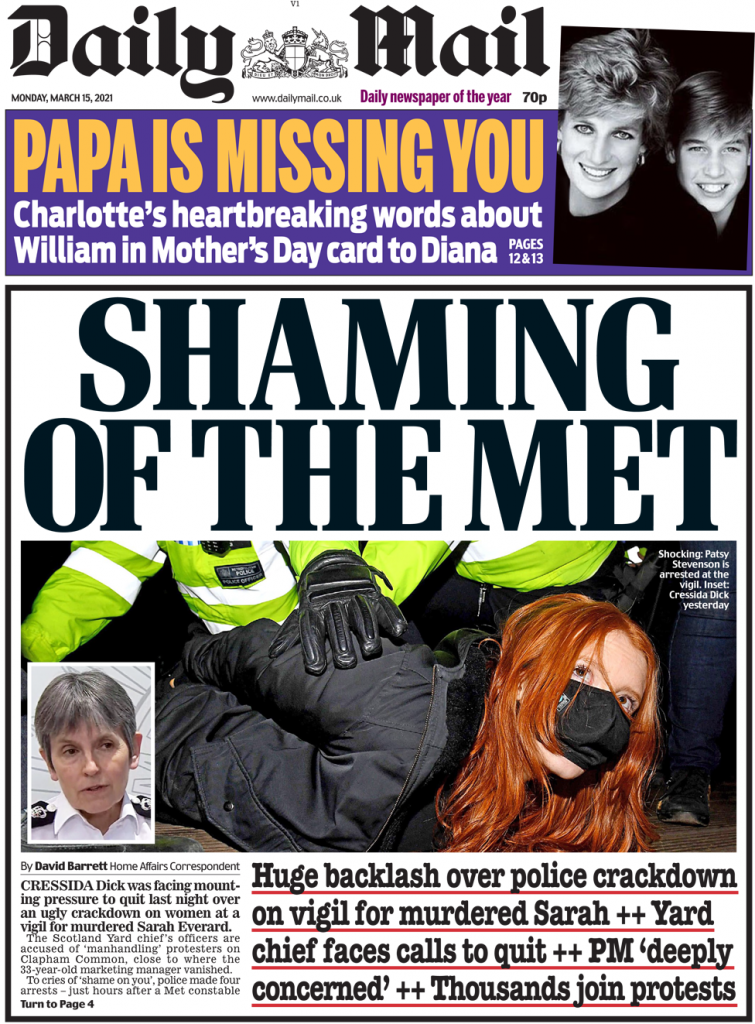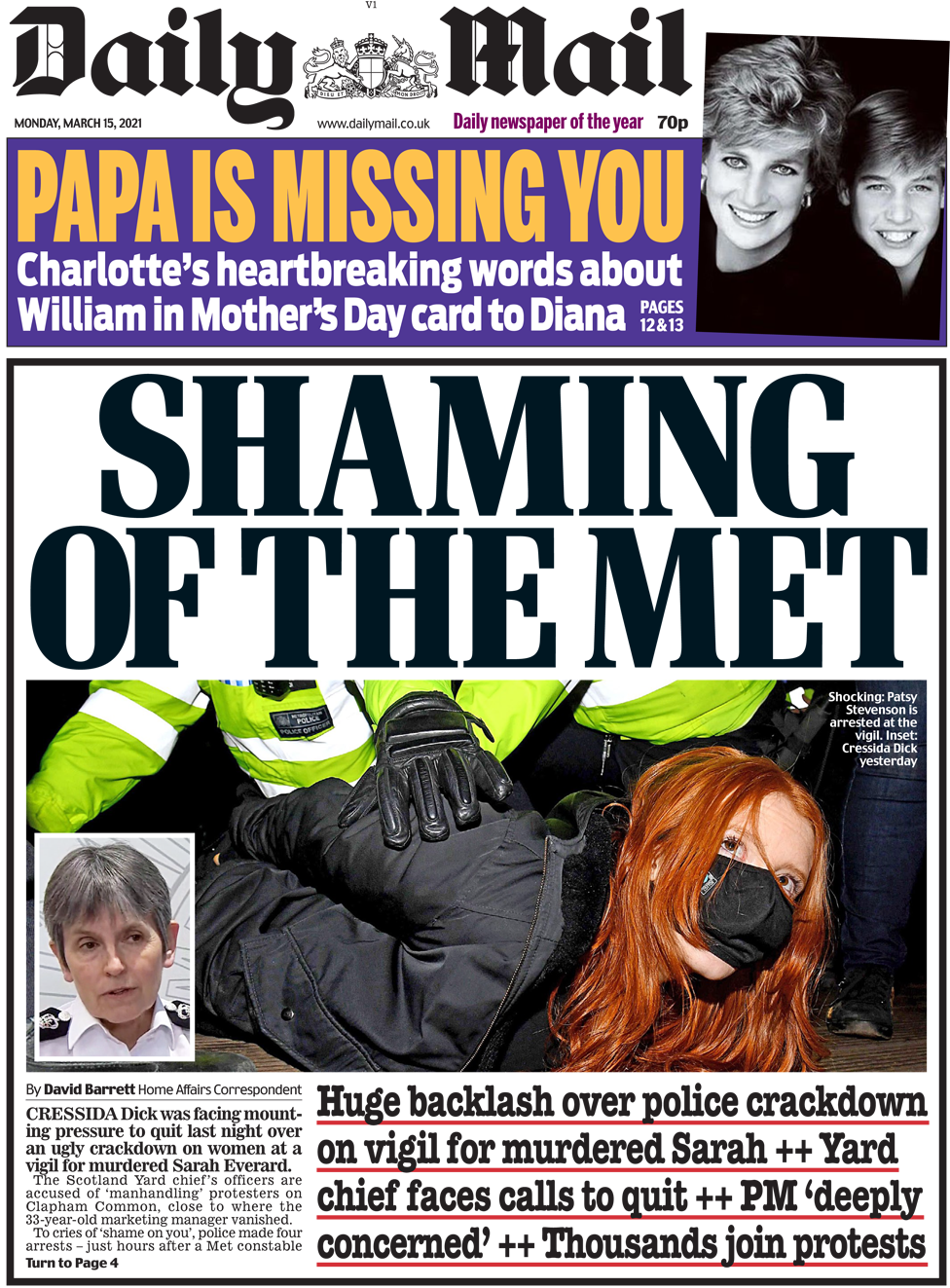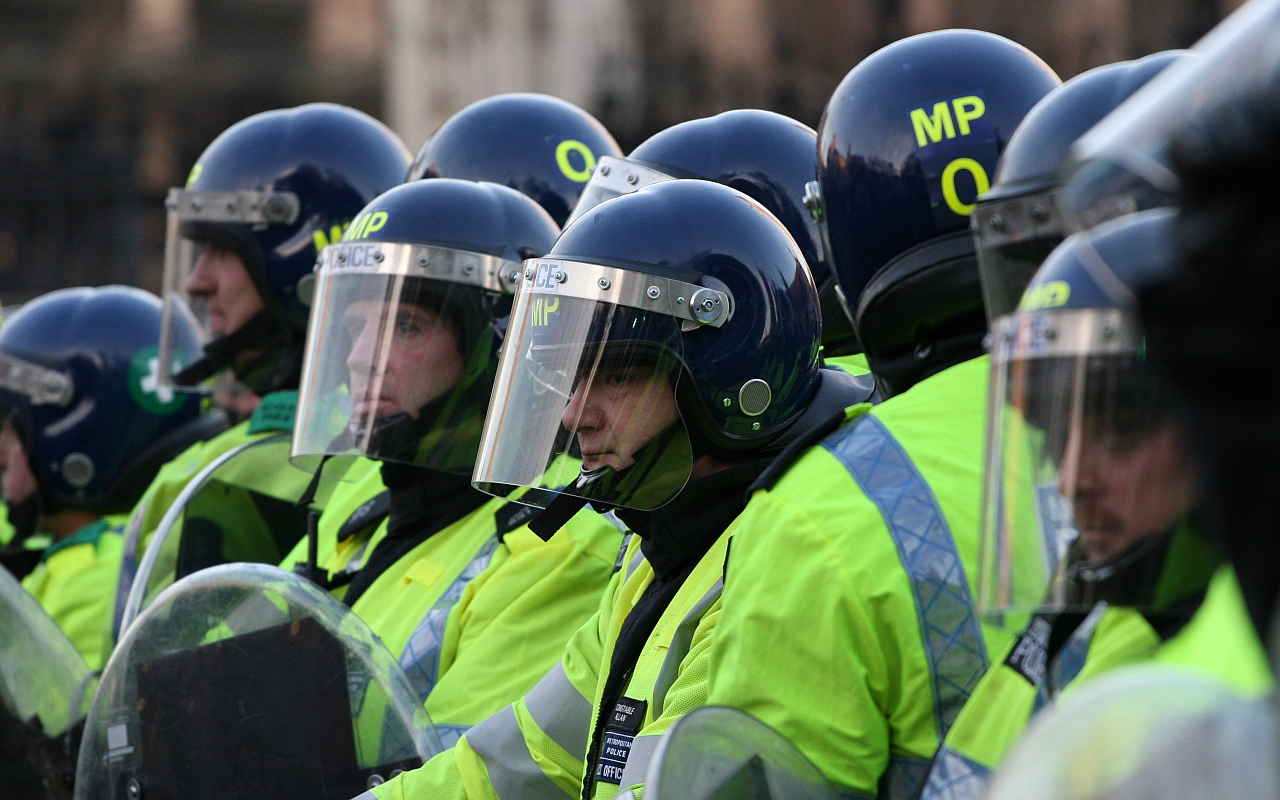An investigation into police conduct at protests earlier this year has identified ‘significant failings’ in the responses of the Metropolitan Police and Avon & Somerset Constabulary. The inquiry, conducted by the All Party Parliamentary Group (APPG) on Democracy and the Constitution, consisted of evidence from protestors, independent experts, and members of the police forces under scrutiny. Its report, released today, examines police failings during the Bristol ‘Kill the Bill’ protests against the Police Crime Sentencing and Courts (PCSC) Bill in March and April, and the Clapham Common vigil for Sarah Everard, who was abducted and allegedly murdered by a then-serving police officer.
The report aims to inform MPs’ consideration of the Police Crime Sentencing and Courts (PCSC) Bill, currently making its way through Parliament. Alongside a series of provisions that indirectly threaten to criminalise Gypsy, Roma, and Traveller (GRT) communities, the Bill proposes to increase police powers to limit and control protests, including the ability to place conditions on protests if deemed too noisy. Alongside these powers is the introduction of a statutory offence of ‘intentionally or recklessly causing public nuisance’ reinforced by harsher sentencing provisions.
Addressing the Clapham Common vigil which took place in March this year, the report found that the Metropolitan Police adopted a poorly conceived reading of the law which imposed a ‘presumption of illegality’ on all protest activity. Giving oral evidence, the Met’s assistant commissioner Louisa Rolfe exhibited a ‘fundamental misunderstanding’ of the law governing protest rights in the UK, conflating the European Convention on Human Rights (ECHR) with European Union jurisprudence. ‘There is no obligation to facilitate protest in domestic law. It is solely in European case law,’ she said.
Acknowledging that the Met had to navigate ambiguous wording within the relevant coronavirus regulations, the report concludes that the force ‘did not take proper account of the right to protest, including the obligation to facilitate peaceful and safe protest’, and used force that was ‘not proportionate’.
In written evidence, one attendee told the APPG that the atmosphere shifted from what was a calm and peaceful vigil once police entered the bandstand, where speakers had been sharing tributes. ‘I could not see what was happening inside the bandstand, but I could see three young women standing by the railings looking out on the crowd ripped from where they were standing, violently thrown to the floor, and arrested. It was unclear what they had done, other than simply stand there. The arrests seemed almost completely random.’
According to the report, the Avon & Somerset Constabulary’s response to the Bristol protests was equally replete with failings. Acknowledging that some protestors did resort to violence, the APPG notes that police failed to distinguish between these protestors and those who remained peaceful, even turning to what witnesses called ‘revenge policing’. Specific reference is made to a young woman subjected to a counter-terror style raid on her home by police disguised as postal workers. Katie McGoran’s shared student house was ransacked by at least four male officers five days after she attended a protest in Bristol. At the time only partially dressed, Ms McGoran was handcuffed, intimidated to the point that she suffered a panic attack, and then left in handcuffs even after the police realised that she was not the suspect they were looking for.
The APPG expressed concern at the ‘excessive force against peaceful protestors’ employed by the Avon & Somerset police, in particular through ‘blading’, whereby protective shields are repurposed as weapons. Speaking in March this year, Superintendent Runacres of ASC told BCFm Radio that: ‘I’ve been in policing for over 25 years now, and it’s an unfortunate reality that in public order policing, the tactics that are used – the shield strikes that you’re referring to – that’s an absolutely legitimate and trained tactic that officers are coached on in their public order training.’ In its written submission to the APPG, Avon and Somerset Police state that accusations of ‘blading’ have been investigated, and that no complaints have been upheld.
The report proposes a number of recommendations, including a consultation on the creation of a statutory Independent Protest Commission, an investigation into the efficacy of existing accountability mechanisms, and the ‘wholesale removal of the clauses in the (PCSC) bill which give the police or government coercive powers over peaceful protest’.








